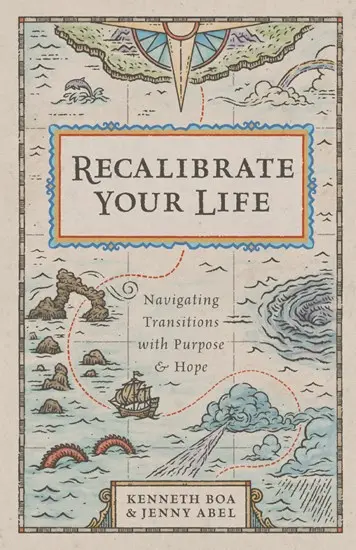How should a follower of Jesus respond when fear comes? What does Scripture advise us to do in turbulent times?
Cling to God’s promises in the midst of fear with Ken Boa’s Handbook to God’s Promises.
From Fear to Prayer
Paul gives us a very practical and comforting command in Philippians 4:6–7 that ought to govern how we approach our fears:
Be anxious for nothing, but in everything by prayer and supplication with thanksgiving let your requests be made known to God. And the peace of God, which surpasses all comprehension, will guard your hearts and your minds in Christ Jesus.
The Bible does not deny that we will face adversity in this life—in fact, it guarantees we will face troubles (see John 16:33, for example). Neither does God’s Word deny that our initial response to calamity or adversity is often feelings of fear. But Paul tells us that even in the most dire of situations, we have the ability to act in faith. How? Not by pretending the fear isn’t real, and not by mustering up all the courage we can, but by acknowledging our fears and making them known to the Lord in prayer.
Even in the most dire of situations, we have the ability to act in faith.
This passage in Philippians doesn’t preclude acting with prudence and caution when circumstances warrant it. Nothing in this passage says we can’t prepare for the worst. But there should be a distinct difference between the way the world handles fear and the way followers of Jesus handle fear.
The world panics; we pray.
The world panics; we pray.
And what are we doing when we pray in the face of fear? We aren’t just pretending the cause of our fears isn’t real. Rather, we are relinquishing our grasp on those fears—asking Him to take control of them. We are acknowledging that we are not in control of the causes of our fears, but He is. We are recognizing that He is sovereign even over the things we fear most. We are asking Jesus to take our heavy burden upon Himself and replace it with His easy yoke (Matthew 11:28–30).
From Prayer to Peace
For some, the command in Philippians 4:6 to “be anxious for nothing” sounds unrealistic. Surely, we tell ourselves, anxiety is simply a part of life that can’t be avoided no matter how much we pray. Surely it is impossible to be at peace in every situation!
But don’t miss where that peace comes from. God does not expect us to rid ourselves of anxiety by our own power. He is the one who provides peace. When we make our fears and requests known to Him, we receive the “peace of God, which surpasses all comprehension” (Philippians 4:7).
How the world longs for peace and rest from its fears! But the world seeks peace in all the wrong places—in job security, in money, in worldly resources, in other people’s opinions, in self-reliance, in the illusion of control that comes from knowledge and information, and so on. All these things will ultimately betray us, because they are fleeting, finite, and fallible; they disappear like morning dew evaporating from the grass.
True peace cannot come from anywhere but God.
True peace cannot come from anywhere but God. He alone is able to give peace in the midst of fear, because He alone “upholds all things by the word of His power” (Hebrews 1:3).
What Should We Do?
How should we as followers of Jesus respond to a crisis like the present COVID-19 pandemic and its related impact? Exactly how we respond to any other trial, large or small: with prayer.
Don’t start (or end) your day with your news feed but with prayer. Specifically, take your fears before the Lord, lay out your anxieties before Him, name the thing that frightens you (whether it’s disease, the loss of a loved one, economic loss, political turmoil, or something else), and ask the Lord to transmute your fears into the peace that only He can give.
Of course, there are many practical actions we’re being advised to take to help prevent the spread of this virus, and we would do well to pay attention to those recommendations insofar as they are reasonable. But our first and most important response must be to pray.
[panel style=”info” text_align=”center”]“Now may the Lord of peace Himself continually grant you peace in every circumstance. The Lord be with you all!”(2 Thessalonians 3:16)[/panel]
For more on fear and faith, click below.



